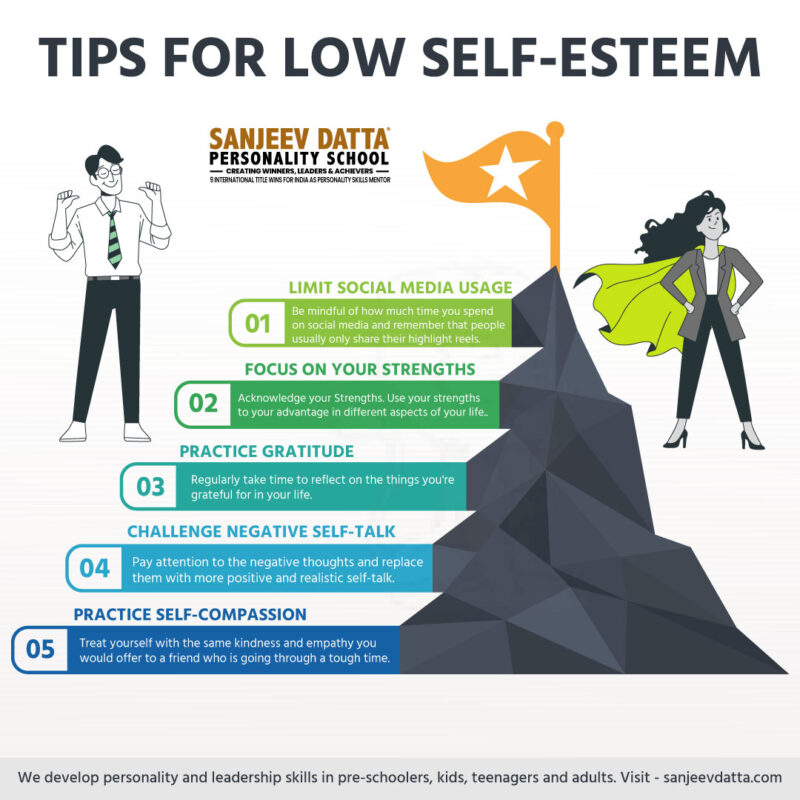Have you ever found yourself in a room filled with accomplished individuals, each sharing their achievements and accolades, only to feel like an impostor amidst their success? This pervasive feeling of inadequacy, despite evidence of competence and accomplishment, is what psychologists refer to as Imposter Syndrome. In this comprehensive guide, we delve deep into the intricacies of Imposter Syndrome and unveil a plethora of strategies to combat its debilitating effects. Join us as we explore Strategies for Overcoming Imposter Syndrome, empowering you to reclaim your confidence and excel in every aspect of your life.
Understanding Imposter Syndrome:

Imposter Syndrome is not merely a fleeting sense of self-doubt; it is a complex psychological phenomenon that affects individuals across diverse backgrounds and professions. At its core lies a deep-seated fear of being exposed as a fraud, despite tangible evidence of success. Whether you’re a student, a professional, or an artist, Imposter Syndrome can cast a shadow over your accomplishments, leading to chronic stress, anxiety, and diminished performance.
Research suggests that Imposter Syndrome often stems from a combination of internal factors, such as perfectionism, fear of failure, and low self-esteem, exacerbated by external pressures and societal expectations. Individuals afflicted by Imposter Syndrome tend to attribute their achievements to luck or external factors, discounting their own abilities and contributions.

Now, the question arises: How can one overcome Imposter Syndrome and regain their sense of self-worth and confidence?
Strategies for Overcoming Imposter Syndrome:

- Recognize and Acknowledge:
The first step towards overcoming Imposter Syndrome is to recognize and acknowledge its presence in your life. Become attuned to the signs and symptoms – the nagging voice of self-doubt, the fear of being “found out,” and the tendency to downplay your achievements. By acknowledging the existence of Imposter Syndrome, you take the crucial first step towards liberation from its grip.
Visit: how to build positive self esteem
2. Reframe Your Inner Dialogue:
One of the most powerful strategies for overcoming Imposter Syndrome is to reframe your inner dialogue. Challenge negative thoughts and beliefs by replacing them with affirmations of your worth and capabilities. Instead of dwelling on past mistakes or perceived shortcomings, focus on your strengths, accomplishments, and the journey of growth and learning that brought you to where you are today. Practice self-compassion and kindness towards yourself, treating yourself with the same empathy and understanding that you would offer to a friend facing similar challenges.
3. Celebrate Your Achievements:
In the relentless pursuit of perfection, individuals afflicted by Imposter Syndrome often overlook their achievements and brush aside compliments. Break this pattern by consciously celebrating your successes, no matter how small or insignificant they may seem. Keep a journal of accomplishments, milestones, and moments of triumph, and revisit them whenever self-doubt rears its head. Remember, every achievement – big or small – is a testament to your hard work, dedication, and resilience.
4. Seek Support and Validation:
Combat the isolation of Imposter Syndrome by seeking support and validation from trusted friends, family members, mentors, and colleagues. Share your feelings and experiences openly, and you’ll likely discover that you’re not alone in your struggles. Surround yourself with individuals who uplift and empower you, and lean on their encouragement and support during moments of doubt. Remember, vulnerability is not a sign of weakness but a testament to courage and authenticity. Fostering fearless futures: unleash your child’s potential with our dynamic personality development classes.

6. Embrace Growth and Learning:
Shift your focus from perfection to progress by embracing a growth mindset – the belief that abilities and intelligence can be developed through dedication and effort. View challenges as opportunities for growth and learning, and embrace failure as a natural part of the journey towards mastery. Adopt a curious and open-minded approach to life, and relish the process of continuous improvement and self-discovery. Cultivate resilience in the face of setbacks, and let adversity fuel your determination to succeed.
7. Set Realistic Goals:
Imposter Syndrome often thrives in environments where unrealistic expectations and standards prevail. Combat this by setting realistic, achievable goals for yourself, based on your values, strengths, and aspirations. Break down larger goals into smaller, manageable tasks, and celebrate each milestone along the way. By setting realistic goals and acknowledging your progress, you’ll build confidence and momentum, gradually overcoming the self-doubt that accompanies Imposter Syndrome.
Visit: how to set goals for yourself
8. Practice Self-Care:
Self-care is not just a luxury; it’s a necessity, especially for individuals grappling with Imposter Syndrome. Prioritize your physical, emotional, and mental well-being by engaging in activities that nourish and rejuvenate you. Whether it’s exercise, meditation, creative expression, or spending time with loved ones, make time for activities that bring you joy and fulfillment. Remember, self-care is not selfish; it’s an essential component of resilience and self-compassion.

9. Challenge Perfectionism:
Perfectionism is a common trait among individuals afflicted by Imposter Syndrome, driving them to set impossibly high standards for themselves and others. Challenge this mindset by embracing the concept of “good enough” – recognizing that perfection is an illusion and that mistakes are an inevitable part of the learning process. Practice self-compassion and forgiveness when things don’t go as planned, and remind yourself that you are worthy of love and acceptance, regardless of your achievements. Empowering every child’s journey: discover the power of personalized personality development for kids for a brighter tomorrow

10. Cultivate Resilience:
Resilience is the ability to bounce back from setbacks and adversity, emerging stronger and more resilient than before. Cultivate resilience by reframing failures as opportunities for growth, learning, and self-discovery. Instead of dwelling on past mistakes or perceived shortcomings, focus on the lessons learned and the resilience gained along the way. Draw inspiration from your resilience and the resilience of others, knowing that you possess the inner strength and determination to overcome any obstacle that comes your way.
11. Seek Professional Help:
If Imposter Syndrome is severely impacting your life and well-being, don’t hesitate to seek professional help from a therapist or counselor. Therapy can provide you with the tools, strategies, and support you need to overcome Imposter Syndrome and reclaim your confidence and sense of self-worth. A trained therapist can help you explore the underlying causes of Imposter Syndrome, challenge negative thought patterns, and develop coping mechanisms to manage feelings of self-doubt and inadequacy.
Visit: how to build digital resilience
Conclusion:
In conclusion, Imposter Syndrome may cast a long shadow over your journey, but it need not define your destiny. By recognizing its presence, reframing your inner dialogue, celebrating your achievements, seeking support, embracing growth and learning, setting realistic goals, practicing self-care, challenging perfectionism, cultivating resilience, and seeking professional help when needed, you can overcome Imposter Syndrome and reclaim your confidence and sense of self-worth.
So, dear reader, as you navigate the twists and turns of your personal and professional journey, remember these words: Strategies for Overcoming Imposter Syndrome. Armed with resilience, self-compassion, and a growth mindset, you possess the power to rise above self-doubt and shine brightly as the authentic, capable, and deserving individual that you are. Embrace your journey, trust in your abilities, and watch as you soar to new heights of success and fulfillment.
Why Sanjeev Datta Personality School?
- Interview Training
- Leadership
- Presentation Training
- Social Boldness
- Dressing Etiquette
- Office Etiquette
- Communication Skills
- English Speaking
- Anger Management
- Time Management
- Team Building
- Performance Enhancer
- Soft Skills
- Goal Setting
- Career Counselling
- Student Subject Choice Counselling
- Listening Skills
- Video Presentation
- Meditation
For more details, contact us now!

